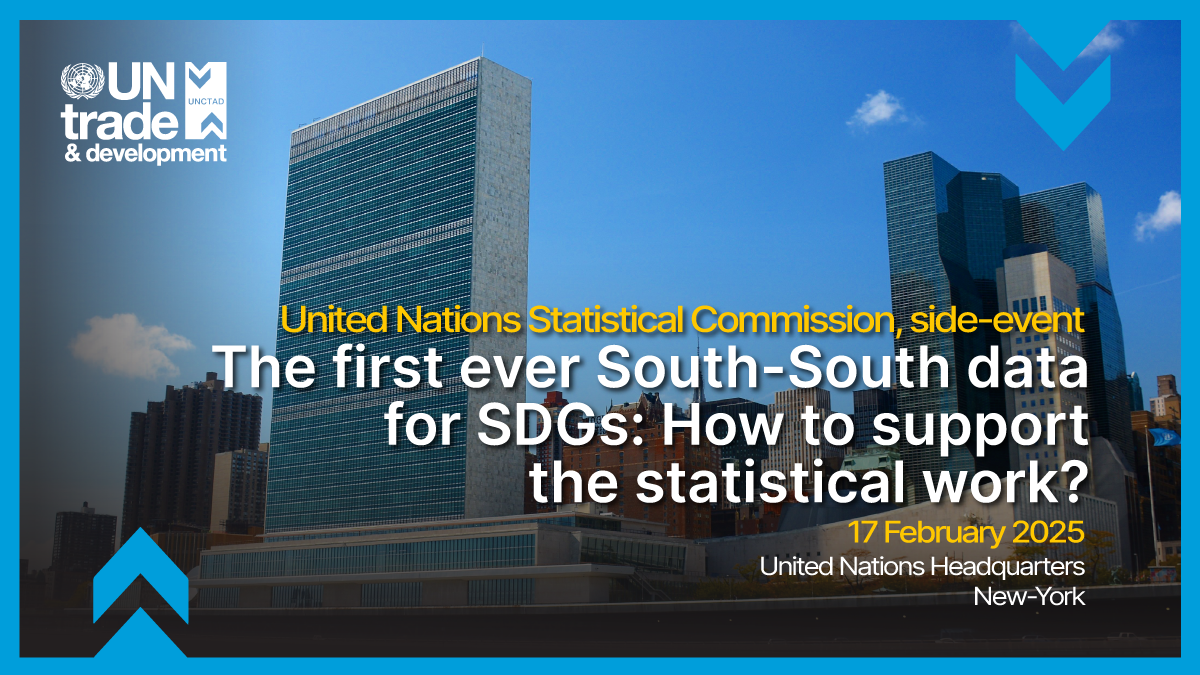In 2022, the UN Statistical Commission adopted a new SDG indicator 17.3.1, and welcomed the development of an initial Conceptual Framework for the Measurement of South-South Cooperation.
It is the first ever Framework developed and agreed upon by the countries of the global South for this specific purpose and enables the reporting of South-South data for SDGs, alongside long-established data on North-South development support flows.
The Commission asked the UN Trade and Development (UNCTAD) to test the Framework, provide capacity building support and enable the reporting of data globally. Now a Manual has been developed with pioneering countries, and first data are reported.
South-South cooperation is increasingly important in advancing progress towards the 2030 Agenda, alongside other development support. But lack of data has kept its contribution largely invisible, making it difficult to manage the flows as a strategic resource.
Now over 60 countries have requested UNCTAD's support to start reporting South-South data.
Questions to be addressed:
- How can national statistical offices help support the pooling of data from many agencies involved in South-South cooperation projects.
- How to organize country-led global work to refine common methods and develop tools.
- How to support one another in data reporting to amplify the voices of the South in global debates.
Speakers:
- Anu Peltola, Director, UNCTAD Statistics Service
- Wafa Aboul Hosn, Chief, ESCWA Statistics
- Dima Al-Khatib, Director of UN Office for South-South Cooperation
- Marcio Correa, Development Cooperation Agency ABC, Brazil
- André de Mello e Souza, Institute of Inclusive Development Policies IPEA, Brazil
- Anne Ibrahim, National Bureau of Statistics, Nigeria

